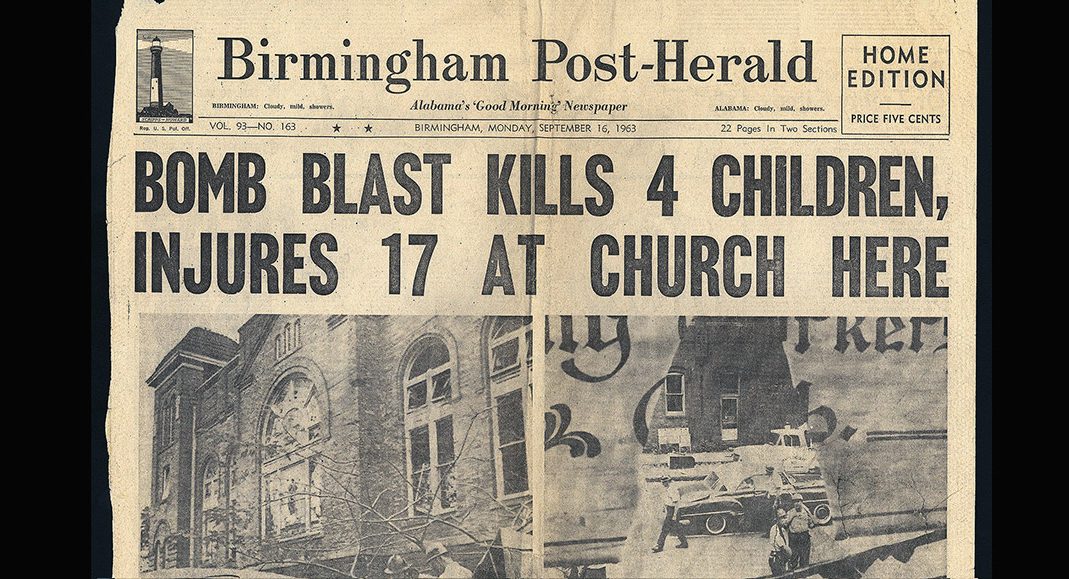 Happy Black History Month fellow Birmingham-ians! Growing up in Louisiana, I learned about only a small portion of the national events that took place during the Civil Rights Movement. Very few of those were based in Birmingham, Alabama, so I think it’s important to educate myself on the history of the city I now call home.
Happy Black History Month fellow Birmingham-ians! Growing up in Louisiana, I learned about only a small portion of the national events that took place during the Civil Rights Movement. Very few of those were based in Birmingham, Alabama, so I think it’s important to educate myself on the history of the city I now call home.
I am embarrassed to say that I never learned about “Bombingham” or even MLK’s “Letter from a Birmingham Jail”. How could I have been taught Black History every year in grade school and somehow miss those impactful moments?! The more I read, the more ashamed I feel because I have lived in this city for years and never knew how much it suffered. I hope I accurately picture myself among those brave souls who marched and protested even though they knew they would be charged with crimes, or even worse, for doing so. It’s hard to believe that all of this took place less than 100 years ago.
So many great leaders have paved the way for us to be free to know the great city of Birmingham the way it is today. It is crucial for me to learn about this history so I can raise my son with awareness. If you are new to the city, or even if you simply have forgotten some of the history of Birmingham, I urge you to spend a few hours catching up on the events that took place here. Below, I have written a few thoughts on a couple of the most important events in this city’s history.
“Bombingham”
We have come a long way since Birmingham was first given the nickname “Bombingham” between 1947-1965. During the Civil Rights Movement here, over 50 explosions occured in attempts to force black families out of predominately white neighborhoods. Sadly, most of these bombings remain unsolved and no one has been arrested for the majority of them.
One of the most horrifying incidents was the bombing of 16th Street Baptist Church which has left a lasting impact on our city. Even though our legal system was slow in providing justice, the outrage over the death of of those four young girls grabbed national attention. Birmingham slowly started gaining outside support in the struggle to end segregation. In fact, this momentum would eventually help pass the Civil Rights Act of 1964 and the Voting Rights Act of 1965. Before the church bombing, America had little to no idea that there were over 50 other bombings in our city. (A local neighborhood actually gained the nickname Dynamite Hill.)
In the years leading up to the bombing, Minister Fred L. Shuttlesworth founded the Alabama Christian Movement for Human Rights (ACMHR). Later, none other than the Reverend Dr. Martin Luther King, Jr. joined him in his important work. These men, and this organization, were crucial in Birmingham’s fight for equality.
Letter from a Birmingham Jail
Many of us have heard of this famous letter, but how many of us have taken the time to read it? If you haven’t, you can do that here. Here is one of the most impactful parts, in my opinion:
“You may well ask: ‘Why direct action? Why sit ins, marches and so forth? Isn’t negotiation a better path?’ You are quite right in calling for negotiation. Indeed, this is the very purpose of direct action. Nonviolent direct action seeks to create such a crisis and foster such a tension that a community which has constantly refused to negotiate is forced to confront the issue. It seeks so to dramatize the issue that it can no longer be ignored. My citing the creation of tension as part of the work of the nonviolent resister may sound rather shocking. But I must confess that I am not afraid of the word ‘tension.’ I have earnestly opposed violent tension, but there is a type of constructive, nonviolent tension which is necessary for growth. . . .The purpose of our direct action program is to create a situation so crisis packed that it will inevitably open the door to negotiation. I therefore concur with you in your call for negotiation. Too long has our beloved Southland been bogged down in a tragic effort to live in monologue rather than dialogue.”
Some Background
All I can say after reading Dr. Kings letter is “wow.” The hair literally stood up on the back of my neck. What a powerful letter. Lets recap. Dr. King was arrested and imprisoned for participating in a non-violent demonstration against segregation. He directed his famous letter at eight Alabama clergy who were politically “moderate” religious leaders. Dr. King was finally released four days after he wrote the letter. Despite the cruel treatment he received, he continued his work in Birmingham and nationwide. Now that’s persistence and resilience at it’s finest.
Learn Local History!
These two topics, while impactful, are only the tip of the iceberg that is Birmingham’s history. So many important events took place in this city in the fight for freedom. I can truly say that after exploring the history surrounding these events, I am more proud to call Birmingham my home.











